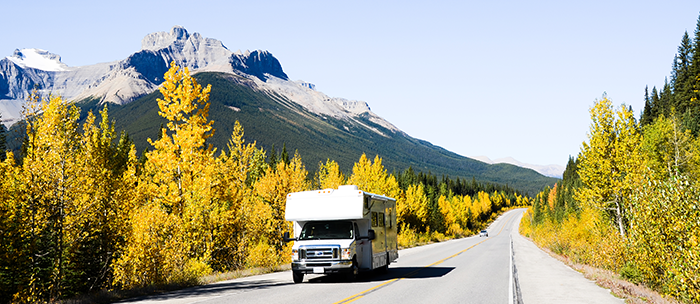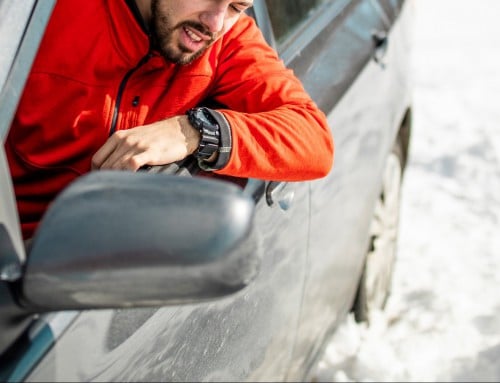Camping season is officially over. As you get ready to park your recreational vehicle (RV) away for the winter, you’ll want to make sure to take some preventative measures so it’ll be ready for use come spring.
With proper maintenance, you can avoid costly repair bills resulting from weather damage, and keep your RV running well into next winter. Follow our simple checklist below to winterize your RV.
Change oil and filters
Like cars, RVs need their oil and filters changed regularly to keep your engine running properly. Most manufacturers suggest an oil change every 3,000 to 4,500 miles, but make sure to check your owner’s manual first.
Service your RV
One of the primary problems with generators comes from lack of use, which is what happens when it sits unused in the winter months. The fuel breaks down and that leads to hard starts and surging, as well as moisture build up that could damage your generator. To prevent this, run the generator for two hours every three or four weeks with a 50% load on it (generators are designed to run with a load).
Replace liquids
Replace the fuel, coolant and hydraulic filters in your RV. You can incur damages from increased fuel usage, overheating issues with the cooling system, or oxidization in the hydraulic system. For more information on how to do this, check out our blog post on winter car maintenance. Also keep your waste water system in good condition by using biodegradable RV toilet paper.
Inspect the roof
Check the roof seals and seams every six months. Water damage is the leading cause of claims in Canada, and particularly in the winter months. Perform a roof inspection at least twice a year. If you have a rubber roof, have your roof treated at least once a year to protect it from sun damage.
Check your tires
The pressure in your tires tends to drop significantly in the winter due to the cold air, so do routine checks through the winter months. Check your tire pressure as well as the lug nuts before every trip.
Remove batteries
If you’re not going to be using your RV during the winter, take your battery out; they have a tendency to freeze and break. If you plan on using your RV throughout the winter, then check your batteries before every trip. Deep cycle batteries are good for 3-5 years.







